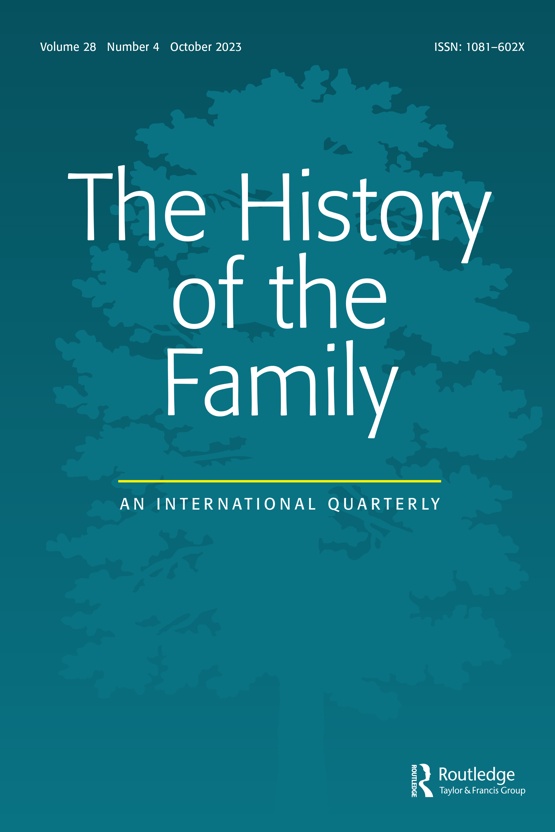Submit a Manuscript to the Journal
The History of the Family
For a Special Issue on
Household Economy in the Nordics (16th to 20th centuries)
Abstract deadline
Manuscript deadline

Special Issue Editor(s)
Matteo Pompermaier,
University of Brescia
matteo.pompermaier@unibs.it
Martin Dackling,
Lund University
martin.dackling@hist.lu.se
Household Economy in the Nordics (16th to 20th centuries)
The Nordic model, known for its combination of economic efficiency, robust welfare policies, and political stability, represents a distinctive socio-economic system in northern Europe. This model has fostered a high standard of living by merging free market capitalism with extensive welfare support. The characteristics of the Nordic model had critical effects on households’ financial behaviour. The high level of trust, the supportive role of the government, and the widespread availability of consumer credit have historically contributed to low saving levels, while also driving household debt-to-income ratios higher than in many other countries.
These features characterize the Scandinavian countries in the most recent part of their history. Is it possible to trace the roots of the Nordic model and craft a comprehensive history of household finance in the Nordics? How did households in the past organize their finances, manage payments, credit, and savings? Were there specific institutional arrangements supporting households – among which formal or informal set of rules, institutions & organizations, norms and conventions, and so forth? Despite a broad literature devoted to this topic, several areas remain unexplored. Only a few studies focus on the household level, while most of them relies on aggregate data. In many cases, we lack a perspective on how household organized their economy and how they managed several basic functions like payments, savings, and credit.
This special issue aims to contribute to filling this gap. To this end, we are seeking for contributions that focus on household finance in the Nordics (Sweden, Denmark, Finland, Norway, Iceland) roughly between the 16th to the 20th centuries. Authors should engage with one or more of the following themes:
-
Strategies for balancing irregular incomes and expenditures over time.
-
Household participation in formal and informal credit markets.
-
Savings behaviours and strategies in historical context.
-
The role of formal or informal welfare systems in household support.
-
Gender roles within the household economy, including the financial contributions of both women and men.
-
Inheritance patterns, and more in general intergenerational transfer of wealth.
Submission Instructions
Deadline for proposing abstracts of papers (max 500 words) is January 30, 2025
By email to: matteo.pompermaier@unibs.it and martin.dackling@hist.lu.se
Authors of accepted abstracts will be notified before 28 February 2025. Completed manuscripts should be prepared according to the History of the Family guidelines and submitted to the guest editors by 31 August 2025 (max 10,000 words and, after receiving their feedback, through the journal submission site by 15 December 2025, when they will undergo the standard peer-review process. Accepted articles will be published from 2026 onwards on rolling basis online first.
For any further information, please contact Matteo Pompermaier matteo.pompermaier@unibs.it and Martin Dackling martin.dackling@hist.lu.se

